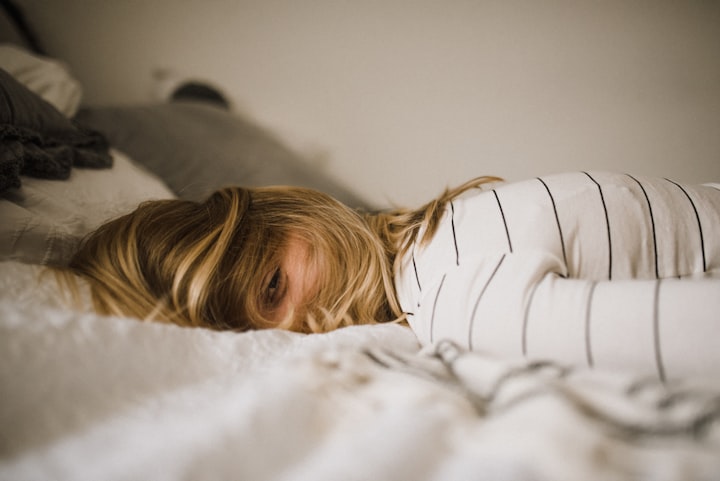What is Sleep Paralysis Disease?
Sleep paralysis is usually what kind of reaction in the body?

What are the ways to prevent sleep paralysis? Sleep paralysis has a scientific explanation.
Sleep paralysis has several symptoms. When you wake up suddenly, you feel as if something heavy is pressing on your body. It even feels so heavy that the patient cannot breathe properly. Even if there is someone nearby, you cannot call him.
When you suddenly wake up, it seems that there is no energy in the body. Many do not even have the strength to move their hands and feet and make noises. If you try too hard, it sounds like a hum.
Sleep paralysis lasts only a few seconds. But it seems like a lot of time has passed.
Many of our acquaintances have had such an experience. The disease is popularly known as a 'dumb catch'.
What is caught dumb?
In medical terms, the disease is called sleep paralysis. A person suffering from sleep paralysis loses the ability to speak and move for a short period. But the disease can last from seconds to minutes
What is the scientific explanation of sleep paralysis?
Experts explain that sleep paralysis is an intermediate stage between deep sleep and wakefulness, i.e. neurological problems. This stage of sleep is called Rapid Eye Movement or REM in English. REM is a stage of sleep when the brain is most active and people dream. But no muscle of the body is active at that time. Therefore, even if the brain is active, the body seems to be inactive.
Sleep paralysis can happen to anyone. People of any age can be affected in such situations. But a report published by Britain's National Institute of Health showed that young women and teenagers are the most affected.
Specialist doctors mention some significant causes of sleep paralysis, such as:
Sleep paralysis can be caused by not having enough sleep or having too much sleep or not having specific sleep times. Sleep paralysis can also occur after a long trip.
You may also be affected if you are a drug addict or a regular smoker or drinker and have a family history of sleep paralysis.
Sleep paralysis can be caused by psychological problems such as social anxiety or panic disorder.

Treatment of Sleep Paralysis:
Sleep paralysis is not a serious disease. Sometimes it gets better on its own.
This problem can be overcome by making some positive changes in the sleeping environment and habits to try to de-stress the mind.
Some common suggestions for sleep paralysis are,
A minimum of 6 to 8 hours of deep sleep is required at night. Going to bed at the same time every night and at certain times getting used to waking up.
Make sure that the room you sleep in has a comfortable environment, such as no noise, darkness, and a comfortable temperature.
Avoid heavy meals or smoking or drinking caffeinated drinks or tea or coffee before going to bed.
Mobile phones, laptops i.e. any object that disturbs sleep should not be kept near during sleep.
Above all, in case of sleep paralysis, the mind should be reassured that there is no reason to fear. This is a temporary situation and will get fixed after some time. During this time the body should be refrained from moving.
When to consult a doctor:
If despite following the above rules, one has excessive sleep paralysis and regular sleep disturbances, one should consult a doctor.
Because excessive worry due to sleep paralysis can cause abnormally high blood pressure and this can be one of the health risks.
The doctor gives the necessary advice after the general health examination of the patient.
Sometimes they prescribe low to high doses of antidepressants.
An experienced doctor considers the overall condition of the patient and gives the necessary advice. Sometimes doctors prescribe high doses of antidepressants.





Comments
There are no comments for this story
Be the first to respond and start the conversation.